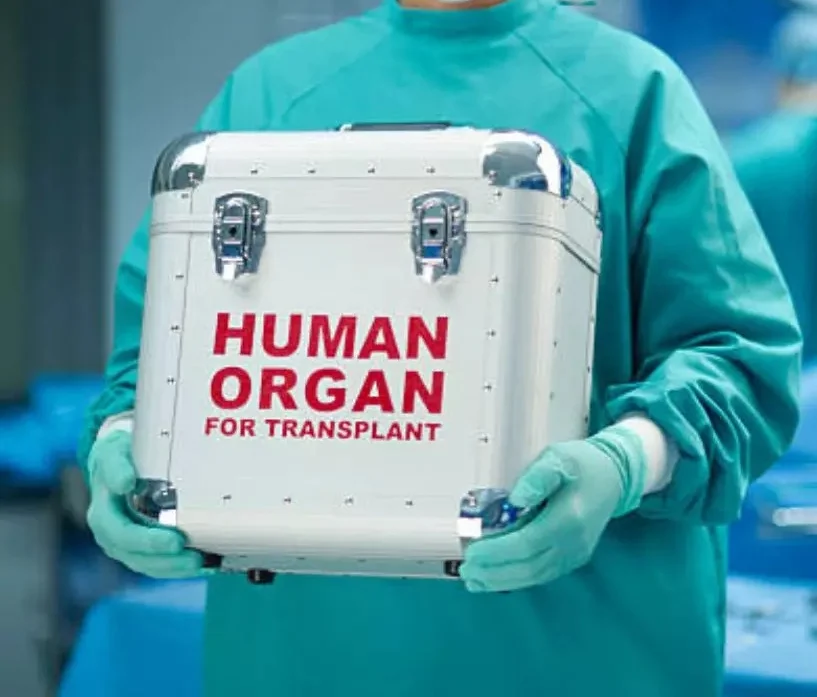August 13th marks World Organ Donation Day, a global observance dedicated to raising awareness about the critical importance of organ donation. As the demand for organs continues to outpace supply, this day serves as a powerful reminder of how organ donation can save and transform lives around the world.
Organ donation involves giving an organ or tissue to someone in need of a transplant. This can be done by living donors—who can donate a kidney, part of the liver, lung, or pancreas—or by deceased donors, whose organs can save multiple lives. The act of donating an organ is more than just a gift; it is a legacy that provides a second chance at life for those facing terminal conditions.
Read Also: NYSC Denies Claims Of Increasing Corps Members Allowance To N70,000
The 2024 slogan for World Organ Donation Day is “Be the Reason for Someone’s Smile Today!”. This slogan aims to raise awareness about the critical need for organ donation and inspire individuals to consider becoming organ donors.
In Nigeria, the need for organ transplants is growing, yet the number of donors remains critically low. Many people are unaware of the process or hold misconceptions and fears about it. This highlights the importance of public education on organ donation, particularly on days like World Organ Donation Day.
To shed more light on this issue, ClockwiseReports conducted an exclusive interview with Professor Aliyu Abdu, a professor of medicine at Bayero University, Kano and also consultant Nephrologist with Aminu Kano Teaching Hospital in Kano.
He emphasized that organ donation has significant societal benefits. “By increasing the pool of available organs, more lives can be saved, reducing the burden on healthcare systems and improving the overall quality of life for many individuals,” he stated.
Read Also: Flood cuts off Kano-Maiduguri highway
However, organ donation is often surrounded by myths and misconceptions. Some believe it contradicts religious beliefs, while others fear it may lead to a premature declaration of death.
Addressing these concerns, Professor Abdu explained, “From my experience, there aren’t too many cultural barriers to organ donation, especially due to the strong family support systems in our extended family structures. In fact, I’ve seen many patients with organ failure receive overwhelming support from family members willing to donate to save their loved ones.”
He further noted that, unlike in some developed countries where cadaveric transplants (from deceased individuals) are common, in Nigeria, most organ transplants involve living donors, often relatives of the recipient. However, he acknowledged that some African cultures still resist the idea of organ donation after death.
“The two major religions in Nigeria, Christianity and Islam, do not oppose organ donation to the best of my knowledge,” Professor Abdu added.
Read Also: Hunger Protests: Nigerians Demand Reversal of Harsh Economic Policies – Fatiha Sirajo El-Yakub
He stressed the need for increased awareness about organ donation, especially since many people do not fully understand the significance of saving lives through this act.
“Studies have shown gaps in knowledge, even among healthcare workers. There’s a need for public enlightenment campaigns and educational programs in both conventional and electronic media to address these gaps. The celebration of World Organ Donation Day is one way to create such awareness.”
Professor Abdu also called for the establishment of more centers offering organ transplants in Nigeria. “Currently, there are very few centers that provide organ transplants, and most are private facilities that charge exorbitant fees, making them inaccessible to ordinary Nigerians.”
He highlighted that, although the passage of the National Health Act has addressed some legal issues, there are still areas that need review. He expressed concern about unethical practices, such as commercial organ donation, that have been reported in the media and are currently being addressed in courts.
“These unethical practices must be curbed to ensure successful organ transplant programs in the country,” he emphasized.
Read Also: Police arrest 9 protesters for displaying Russian flags in Maiduguri
Professor Abdu concluded by highlighting the transformative impact of organ donation. “I have seen many individuals who were once dependent on machines in hospitals now enjoying independent lives and contributing to their communities thanks to organ transplants. The government must invest in manpower and infrastructure to support organ transplants and closely regulate the practice to eliminate unethical practices.”
World Organ Donation Day is not just about celebrating those who have given the gift of life but also about educating and inspiring others to follow in their footsteps. Organ donation is a powerful act of kindness that can transform lives, and it is crucial to continue raising awareness, dispelling myths, and encouraging more people to become organ donors.
As we observe this important day, let us remember that the power to save lives is within us all. By choosing to become an organ donor, you can leave a lasting legacy that embodies compassion, generosity, and the enduring human spirit.

